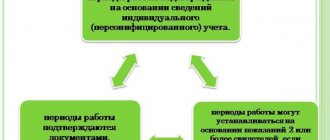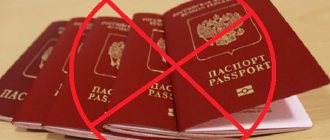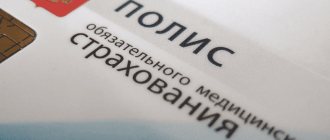Elderly people and bedridden patients are a category of citizens who need constant care from relatives. Despite the fact that this is a very psychologically and physically difficult task, requiring special skills and certain medical knowledge, most often, without thinking, we agree to support a sick loved one and help him during the rehabilitation period.
State support for guardians
A citizen who performs the duties of caring for another person is his trustee and representative of rights and obligations. The guardian spends most of his time with the ward, buys food, cleans the apartment and carries out hygiene procedures, walks with him, and also receives letters and a pension, pays utility bills, treatment and other vital expenses. All this is hard and responsible work, which is partially compensated by the state.
Privileges
An elderly citizen has benefits for paying utility bills and taxes, public transport services (except taxis), and purchasing food and medicine in large retail chains. Money paid to a pensioner or disabled person must be spent on his needs. When living together, the guardian has the right to pay electricity/water/heating bills from the pension of the bedridden relative.
Care allowance
The caregiver has the right to receive a care allowance in the amount of 1,200 rubles (a regional coefficient is added to the established amount, depending on the place of residence of the ward).
Pension contributions
Work experience is the number of years worked by a citizen, during which funds were regularly transferred to the State Pension Fund. Since 01/01/2002, in accordance with the Federal Law “On Insurance Pensions”, the size of the pension depends on the insurance premiums paid and the insurance period, and the concept of “work experience” has no legal force. The length of service determines only the right to a pension, and may differ from the number of years worked.
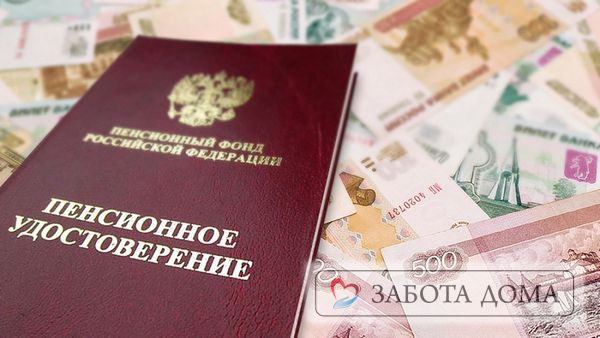
The guardianship and trusteeship authorities are responsible for the length of service in caring for an elderly person over 80 years of age or a bedridden patient and the pension provision of the guardian. Fulfilling the obligations of a guardian, a person most often does not have a permanent place of work, and, accordingly, does not form an insurance pension. When calculating the pension for the period of care, a score of 1.8 is set, provided that the person has ever worked and pension contributions were deducted from his earnings.
Remember! Experience and pension points when caring for an elderly person over 80 years of age or a bedridden patient are awarded to the caregiver if he has formalized guardianship and is not officially employed.
Who pays?
Payments are made to the pensioner you are caring for. The money comes to him along with his pension. He will pay you your wages. The amount, as well as the scope of responsibilities, depends on your agreement with him. If care is not burdensome but constant, it would be fair to divide the monthly 1,200 rubles in one ratio or another. If all you care about is length of service and pension points, and the retiree is strong and able to take care of himself on his own, you can jointly decide that all the money will remain with him. In cases where the burden of care is quite high, at the request of the person under care, additional payments from personal funds are possible in excess of the amount of compensation.
Features of calculating the insurance period
If a person had two or more wards over several years, then the total period of time is counted. For example, citizen Ivanov A.B. in 2020 he looked after V.G. Petrov. from 1.05.2016 to 1.10. 2020 (5 months), then, refusing guardianship, officially got a job. In September 2020, he was fired, and he again took guardianship of his elderly mother until February 2020 (4 months). As a result, 9 months will be counted toward the length of service when caring for an elderly citizen. If Ivanov A.B. cared for both the bedridden patient Petrov and his elderly mother at the same time from 01/01/2017 to 01/01/2018, then he will be credited for 1 year with a pension point of 1.8.
In order for time spent caring for a loved one to be taken into account when calculating length of service and pension, it is necessary:
| Arrange for official guardianship | Only an able-bodied, healthy, unemployed citizen who does not receive any benefits has the right to become a guardian. |
| Notify the Pension Fund | Employees of guardianship and trusteeship authorities must independently inform all other authorities about the appointment or cancellation of guardianship. |
| Save written proof of guardianship | If a citizen supervising an incapacitated bedridden patient or an elderly person over 80 years of age lives separately (not in the territory of the ward), then when applying for a pension he must be provided with written confirmation of guardianship. The document must indicate the period of guardianship, last name, first name and patronymic, date of birth of the ward and guardian. The ward must draw up a written confirmation; if this is not possible, then the document can be written by one of the ward’s family members. |
A citizen who has taken responsibility for the life and health of another person must also remember about himself. The caregiver's costs are partially compensated by the state; for example, compensation includes accrual of length of service for caring for an elderly person over 80 years of age.
What are the requirements for the parties to the contract?
There is only one requirement for a provider of care for the elderly: lack of income and official employment. Until you get a job, you can perform caring responsibilities and receive compensation payments for doing so. You can't count on this kind of income:
- able-bodied pensioners, since they have a constant income in the form of a pension;
- private entrepreneurs even in the absence of any activity and income.
The warded party, according to the presidential decree, can be a pensioner over the age of 80, an elderly person in need of comprehensive care due to poor health, or a disabled person of group I. Family ties between the parties to the contract are not important. You can arrange care for both your own grandmother and a stranger.
The right to care for elderly citizens and people with disabilities
Persons who want to provide publicly funded care for disabled citizens or pensioners are subject to the following requirements:
- Russian citizenship.
- Age - from 14 years to the time of retirement (for 2020 this figure is 60.5 years for men and 55.5 for women).
- Lack of work and other sources of financial income (for example, benefits from the Employment Center). Carer's payments are considered to compensate the carer for possible loss of income elsewhere, so they cannot be combined with pensions and other cash benefits. The only exception is scholarships at universities, and the law allows compensation for student trustees.
- No disability or disease that interferes with the performance of duties.
To apply for social guardianship, it is not necessary to be a relative of the ward - anyone who meets the requirements can become a caregiver for an elderly grandmother or an assistant for a person with disabilities. A citizen who has officially cared for a disabled person or pensioner has responsibilities towards him.
- Pension after 80 years: amount of additional payment
- Cake with prunes - how to make sponge cake, sour cream or honey cake according to step-by-step recipes with photos
- Loan without interest on a card - terms of provision, requirements for borrowers, features and list of microfinance organizations
This includes:
- cleaning of the apartment;
- purchase of food and other necessary goods (here and in the next paragraph this is done at the expense of the ward);
- payment of utility bills and other payments;
- assistance in carrying out hygiene procedures;
- making an appointment with a doctor, monitoring the timeliness of taking medications and carrying out other medical procedures;
- health monitoring (recording blood pressure data, etc.).
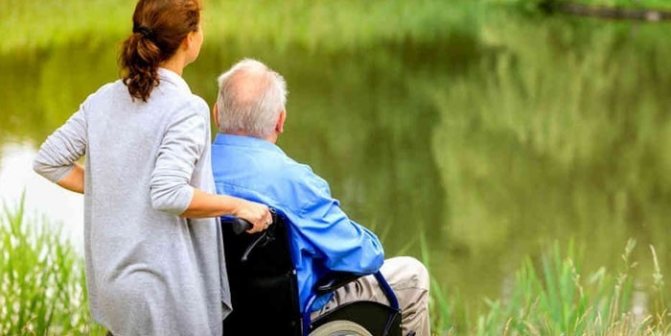
Assignment of compensation payments
The establishment of a pension fund is carried out by institutions that pay pension benefits to a disabled citizen - the bodies of the Pension Fund of Russia (PFR).
The appointment of a CLC occurs upon submission of an application by a disabled citizen and a caregiver and the required set of documents, but not before the right to receive it arises (the onset of disability or reaching the age of 80 years).
List of documents for processing payments
The caregiver submits an application and the following documents :
- identity document (passport) and work records of the applicant and the disabled citizen;
- a conclusion from a medical institution confirming the elderly person’s need for constant outside care;
- extract from the certificate of examination of a disabled person of group 1;
- permission from parents (in any form) and guardianship authorities (for minors under 16 years old), certificate of study;
- documents certifying the powers of the legal representative (certificate or decision of the guardianship authorities, adoption certificate, passport, other documents);
- certificate of absence of pension and unemployment benefits.
Applications for payment for caring for a pensioner
An application for the appointment of a CCU is submitted to the Pension Fund of Russia body, filled out by the caregiver. A disabled citizen or his representative is required to submit an application of consent to the care of a specific person. If a disabled person cannot submit an application himself, then the authenticity of his signature on the application can be confirmed by specialists of the pension authority by visiting his place of residence.
The application indicates personal data (full name, address, passport details, etc.), labor status ( “currently not working”
), the basis for compensation, as well as the date from which the departure occurs.
If at the time of submitting the application all the necessary documents are not available, they can be provided within 3 months from the date of submission of the application .
Appointment dates
Payment is assigned from the first day of the month of application. The decision to appoint or refuse to appoint will be made after the last document is reported (received).
It should be noted that if circumstances arise that lead to the termination of the right to receive a temporary residence permit, the citizen who is providing care must notify the Pension Fund of the Russian Federation within 5 days.
Such circumstances may be:
- death of the person being supervised;
- the return to work of the citizen who provided care, as well as the assignment of a pension or unemployment benefit to him;
- actual termination of supervision of a disabled person.
Don't try to outsmart your pension fund
Do not hide information about income from the fund. If, over time, it becomes known about the receipts into your account during the period of caring for the elderly, you will be required to return the money received. Changes that should be notified without delay:
- You have found a job or have another source of regular income. This means that you are no longer entitled to compensation: the care agreement will be terminated and payments will stop.
- You have been paid a fee or other one-time remuneration. No compensation will be accrued this month, but the contract will remain in force and payments will resume starting next month.
- Your person under your care has died. From this moment on, the receipt of compensation and accrual of length of service ceases.
What problems do relatives face when caring for disabled people is required?
1. Lack of psychological knowledge about the behavior, character and methods of communication of older people;
2. The need to have a free work schedule or work within walking distance from home;
Z. Lack of time , because When caring for a patient, you almost always need to be at home. All the heavy housework, often monotonous and monotonous, falls on the shoulders of the caregiver;
4. The emergence of new responsibilities of a visiting nurse, the development and application of new knowledge and skills;
5. Establishing adequate contact with a sick person. It can be difficult to understand the anxiety and internal discomfort of an incapacitated elderly person, who also often has a difficult character;
6. Limiting your own communication with others due to lack of free time or unsatisfactory living conditions;
7. The emergence of personal problems: poor relationships between family members, the caregiver and the patient; poor health; loneliness;
8. Unsatisfactory living conditions can only aggravate general problems.
Types of payments for caring for the disabled
At the moment, there are 2 types of such payments:
- Compensation payment non-working able-bodied persons caring for disabled citizens (KVU).
This type of support is not new in pension legislation. But, with the adoption of Decree of the President of the Russian Federation of December 26, 2006 No. 1455 “On compensation payments to persons caring for disabled citizens,” a number of significant changes occurred. The amount of compensation was increased, it became 1200 rubles. In addition, one caregiver can now be assigned a CCU for each person in their care.A compensation payment is established for a non-working able-bodied citizen if he cares for a disabled person of group 1 (except for disabled people since childhood), an elderly person in need of care or who has reached the age of 80 years.
- Monthly payment able-bodied non-working citizens who care for disabled children or people with disabilities from childhood of group 1 (EVU).
The procedure for establishing this type of state support is regulated by Decree of the President of the Russian Federation dated February 26, 2013 No. 175 “On monthly payments to persons caring for disabled children and disabled children of group 1”. The amount of payment varies and depends on who is caring for the child:- if a parent, (adoptive parent), guardian (trustee), then 5500 rubles ;
if other citizens, then also 1200 rubles .
Let's look at what is common and what is the difference between compensation (KVU) and monthly care payment (MPV).
| Signs | KVU | EVU |
| Circle of people who need care |
| Disabled children, disabled people of group 1 since childhood |
| Who can look after | Able-bodied citizens do not have to work and cannot be pensioners or unemployed. Regardless of the presence of kinship, the fact of cohabitation | |
| Payment amount | 1200 rubles |
|
| Start of payments | From the first day of the month of filing the application, but not earlier than the right arose | |
| Grounds for termination of payments | In case of employment of a disabled person or a carer, assignment of a pension, unemployment benefits to the carer, termination of care. | |
It should be noted that the annual indexation of compensation payments (an increase in the amount depending on the increase in the cost of goods and services, the level of inflation in the country) is not provided for . Therefore, the amounts indicated in the table have not been increased for many years.



